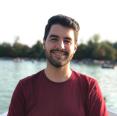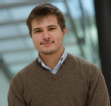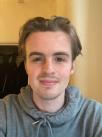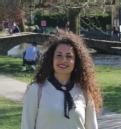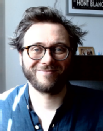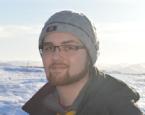Find out more about the 2021 WATE PGR winners
I am originally from Lisbon, Portugal, where I obtained my BSc and MSc in Mathematics, and am currently a third year student on the MASDOC CDT here at Warwick. My broad research interests are in partial differential equations and their applications.
I found it very important to promote an informal environment with the students, and to be a friendly point of contact between them and the module leader. I never wanted to be seen as some figure of authority, but rather as an older colleague who was there to help them succeed in the module, and tried to make our sessions a place where they felt comfortable asking their questions or making any comments they may have. I was also always well prepared and honest with them, and delivered on my commitments. Students pay attention to this.
A 4th Year Operations PhD student at WBS, I am passionate about the subjects I teach. I endeavour to share this passion with my students by creating stimulating, engaging and inclusive learning environments. Teaching has been one of the most satisfying, enjoyable and thought-provoking experiences of my life.
My research at WBS helps organisations create and deploy collaborative practices to support information and knowledge-sharing in projects. I observed the benefits of effective practices on the improvement of knowledge and competencies of individuals and teams. I endeavoured to design my own practices to support my students’ academic development by offering them a range of opportunities. My writing clinics and literature workshops helped students to hone their essay-writing skills, to assimilate the module content effectively and to build confidence in their capabilities. As educators, we can implement engaging learning practices if we just listen and communicate with our students.
My name is Tom Crompton. I am a poet, researcher, publisher and co-founder of Poet's Hardship Fund UK ( https://poetshardshipfunduk.com/ ). I am currently completing a PhD on The Poetics of the Deindustrialising Landscape in the Department for English and Comparative Literary Studies at the University of Warwick.
My sustained attempt to approach teaching and learning with an openness to the unexpected has provided me with invaluable opportunities for rethinking the kind of environment for study I wish to participate in and create with students and colleagues. Deciding to engage with, rather than resist, this year’s challenges has provided with my unexpected insights I will carry forward in my development as a teacher, and as a student of teaching. This year has borne out important lessons on interference’s complex potentialities which both precede and exceeds the events of the past academic year. I look forward greatly to nurturing this practice and theory in collaboration and conversation with others.
I am a PhD candidate and a Graduate Teaching Assistant in Italian Studies. I was awarded my MA from La Sapienza University of Rome, city that I love. I enjoy academic life, writing, organising conferences, networking with peers. My interests span from literature to art, cinema, and travels.
I think that students are unique and must have a stimulating educational environment where they can develop their abilities and acquire knowledge. I attempt to transmit my passion to students, so that the content of the class appeals to them not just because it is 'useful' for their future career plans, but because they love it and find it relevant for their personal growth as individuals. I do my best to guarantee a safe space where students are invited to share their ideas and challenge themselves. I am glad students found a welcoming space also in the new virtual setting.
In 2017, I graduated from the University of Oxford with an integrated masters in Chemistry where I spent my final year, studying and modelling the formation of amyloid plaques in-vitro. Currently, I am a final year student on the four-year MRC funded DTP in Interdisciplinary Biomedical Research under the supervision of Dr Sascha Ott and Professor Jan Brosens.
From my experiences as both a student and a TA on this course, I had several ideas in mind to ensure that the module was not only academically rigorous but also inclusive and accessible. Furthermore, teaching online presented the unique opportunity to create new resources and really individualise student learning.
My name is Johan Heemskerk, I am a PhD candidate in the Philosophy department. I have studied at Warwick since I was an Undergraduate, and love the vibrant atmosphere. I spend most of my time reading, but when I am not I am usually cooking or climbing.
I invented two gameshow-style quizzes, Locke-down and Just Kant Get Enough, playing on the irony of treating serious philosophical content alongside light-hearted and slightly ridiculous quizzes with an over-the-top aesthetic. I discovered my student’s potential with a mixture of patience and persistence. I adapted to the changing requirements of my students by introspecting to draw out visual representations of the problems, making graphs, animations, whole scenes of imaginary philosophical battle grounds. I brought recondite ideas into relevance by relating them to vital questions about the nature of thought and our place in the world.
My name is Gah-Kai (pronounced 'GAR-kay'). I'm currently finishing the second year of my PhD in the Department of Politics & International Studies. My research focuses on the ethical and political issues in earthquake/tsunami risk management. I have a broad interest in social and political philosophy, science and public policy, applied ethics and disaster risk reduction.
Risk-taking and experimentation have been the hallmarks of my teaching this year. Asking students to investigate the barriers faced by disabled people in navigating Warwick campus, for example, led to revealing discussions about power, agency and institutions. I have also assigned sources beyond the typical journal article, such as literature and films; academics do not have a monopoly on meaningful political ideas. This year for instance, my students read Graham Greene's The Quiet American, which vividly dramatizes ideological conflict in ways that are impossible to convey in a scholarly text. As a politics educator, my guiding principle has been (and will always be) to inspire young people to rethink the world around them and their place in it.
I am a third year PhD candidate at the University of Warwick's Law School studying Indigenous environmental and climate justice movements in Canada. I'm also a Contract Law seminar tutor and I'm involved with several university-wide teaching initiatives such as the Warwick Online Learning Certificate and WIHEA's PGR Teacher Digital Hub.
This year, I have learned that the environments in which we work are of greater importance in every way than any individual teacher. My teaching this year has been a product of lessons I have learned from my teaching team, the fantastic faculty at Warwick Law School, and my teachers on the APP PGR. Beyond my role as a seminar tutor, in collaboration with Indigenous Environmental Network and two other Warwick colleagues, I am working to create an open source curricula that turns a critical lens on the “compartments” that comprise a traditional legal university education in the UK, in the context of anti-colonial and anti-racist approaches to environmental and climate justice. As the ED&I representative for PGRs at Warwick Law School, I am also co-ordinating a seminar series on critical approaches to core legal subjects (to be hosted by PGRs from a range of institutions) called “Decolonising the Core”.
I am an early career researcher in philosophy. I am broadly interested in the philosophy of mind and of psychology; particularly issues concerning our experience and knowledge of time. I enjoy teaching a range of philosophy, particularly philosophy of mind and the history of philosophy.
A main aim for this year has been to support students’ academic and holistic development – especially during national lockdowns. At times this has necessitated reaching out to students who aren’t attending seminars in order to find ways that they can still engage with the material; at other times it has involved finding new and additional ways for all students to engage with one another and the course. I have found that making a creative use of some of my ‘office hours’ has been particularly successful in providing a more inclusive and accessible learning experience, without producing additional work for myself.
I am a post-graduate scholar, researching the aesthetic of terrorism post-9/11 through heterological and symptomatological lenses. My research interests include aesthetic theories and philosophies of the visual, the phenomena of waste, filth, excess and degradation in contemporary societies, and the art and creativity of failure and stupidity.
A "successful" teaching assistant should be the one who allows themselves to fail and who makes of their individual difference a teaching style and a way of life. Only in this way they would be able to see how much creativity and difference there exist in a group of students.
I am truly humbled to have been nominated for WATE. I am an associate fellow of Advance HE and am interested in the potential of asynchronous learning and the pedagogy of discomfort. My research at PAIS relates to Japan’s national identity and security policy.
I aimed to establish learning communities where students are comfortable to discuss, criticise and reflect upon ideas, enabling student-led discussion based on mutual respect. I did this through asynchronous online activities to promote a larger learning community between my seminars; reflective discussions on pedagogy to ensure a new understanding of seminar discussion beyond a Kafkaesque sense of obligation; grounding of abstract theories in everyday examples to enhance accessibility; and engaging with relevant material not covered in the lectures or reading material. I am exceedingly proud of the learning communities I and my students fostered together.

